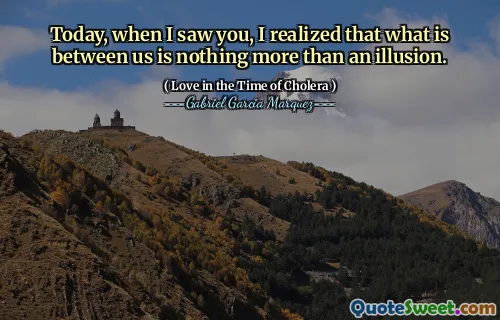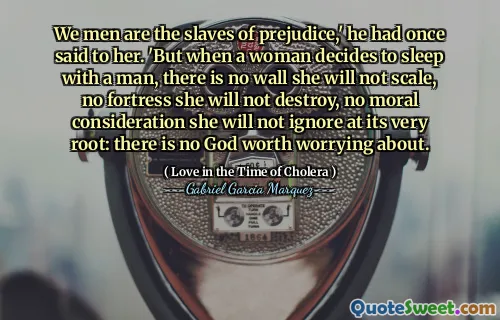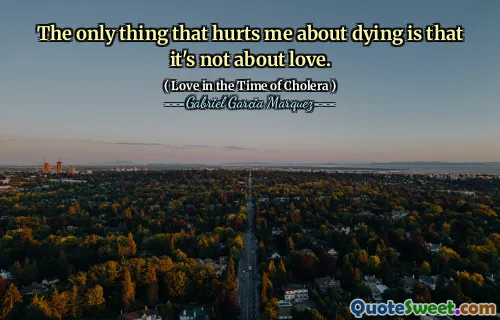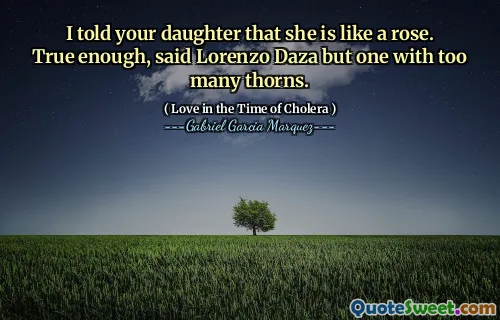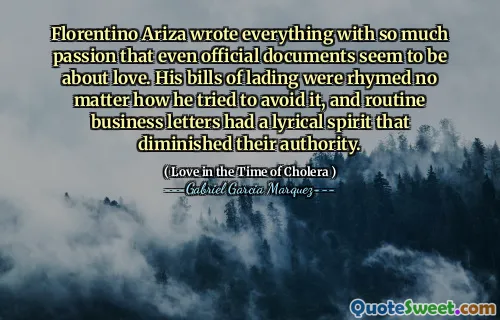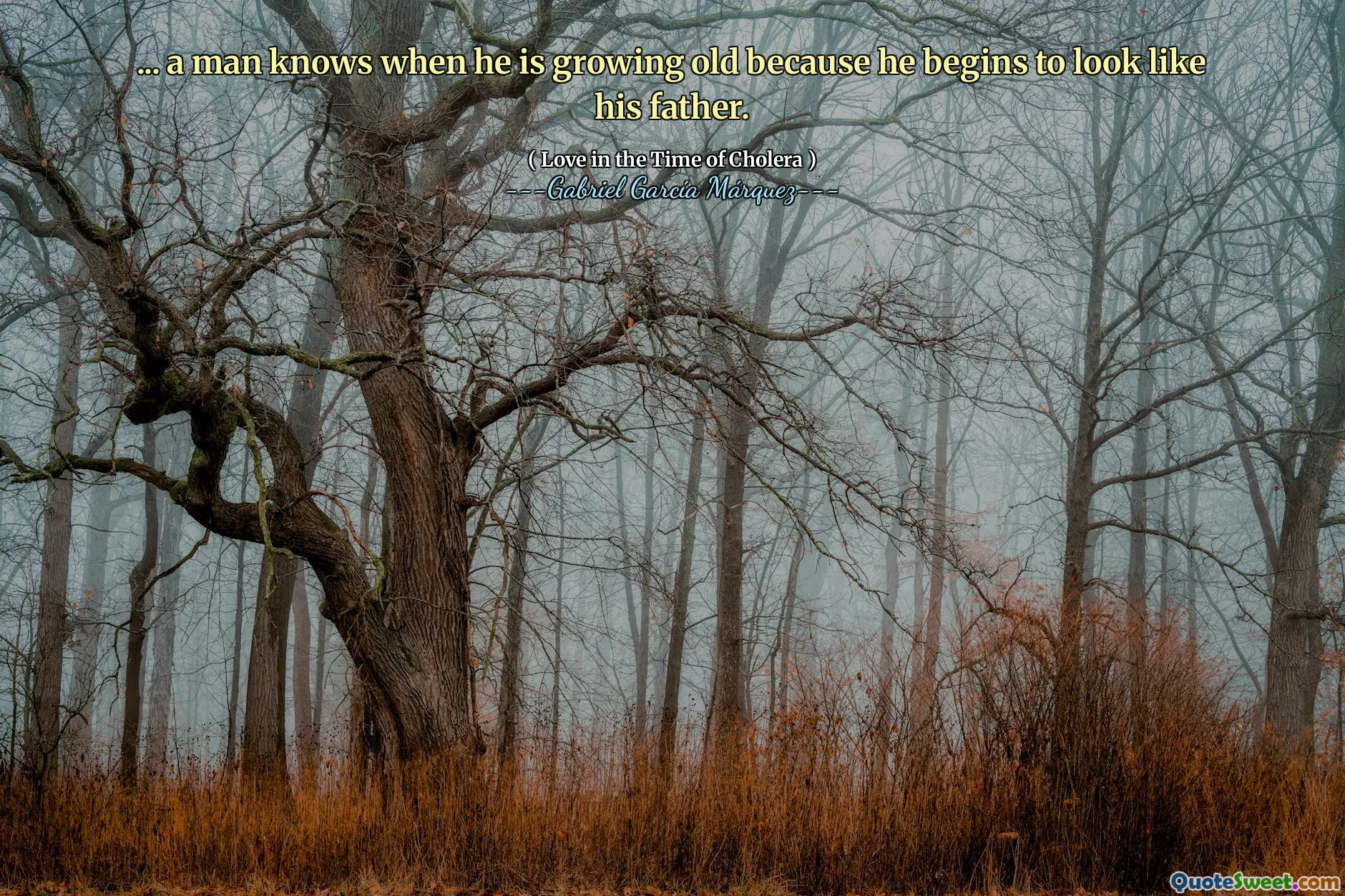
... a man knows when he is growing old because he begins to look like his father.
This quote from Gabriel García Márquez's Love in the Time of Cholera is a profound reflection on aging and identity. At its surface, it highlights a common and sometimes humorous observation: as men age, their physical appearance tends to mirror that of their fathers. But beyond mere physical resemblance lies a deeper metaphor—the process of growing old often brings about a convergence of experiences, values, and attitudes shaped by the previous generation. This resemblance prompts introspection about the passage of time and the inevitability of becoming like those who came before us, a symbol of the cyclical nature of life.
The phrase evokes a poignant acceptance of aging, not as a loss but as an inheritance of traits, wisdom, and even the burdens carried by our parents. It signals a subtle realization that we are part of a lineage, bound by blood and by the years that mark our existence. For many, it can be a moment of nostalgia, a connection that bridges the gap between youth and maturity, and a catalyst for understanding and forgiveness as we recognize the complexities and sacrifices embedded in our forebears.
Through this simple statement, Márquez encapsulates the universal experience of aging with grace and a touch of irony. It serves as a reminder that beneath external changes, the core struggle of life—growing old, learning, and embracing our roots—remains constant. This recognition can foster a deeper appreciation for our heritage and the ways in which our lives reflect the journeys of those who walked before us.
